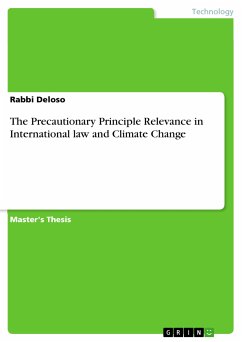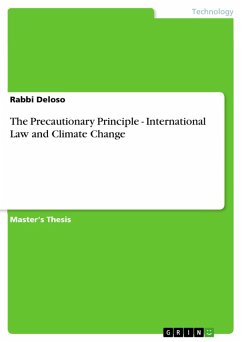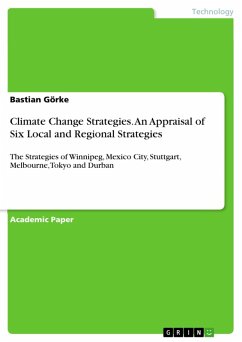Master's Thesis from the year 2005 in the subject Environmental Sciences, grade: Pass with Honours, Lund University (LUMES), course: Environmental Science, language: English, abstract: The precautionary principle is an old concept with a new character. Threats of harm, since the early days of civilization, were confronted by taking some form of precaution. Throughout history, the concept of precaution provided humans with the moral right to avoid potential harm or damage to his health and his environment despite lack of certainty of its occurrence. Today, the precautionary principle is a common legal concept in national and international regulatory policies. In a nutshell, it means that if there is threat or risk of serious or irreversible damage to human health or the environment, precautionary actions must be taken even though there is lack of full certainty surrounding the issue. This paper looks at the concept of precaution in the framework of international law. The precautionary principle is particularly applied in the current global effort to address climate change. Despite many uncertainties about the science and impacts of the global warming phenomenon, leaders of the global community, adopted the precautionary principle, instead of the traditional reactive wait-and-see approach, in the climate regime. Although criticized by many for its shortcomings and its marginal position in the practical sense, this paper looks at the legal validity of the precautionary principle based on its sources, rather than its merits. In other words, this thesis looks at the concept of precaution and examines it in the lens of the contemporary international legal system. The first part of this thesis endeavours to understand better the precautionary principle under international conventional law. Influenced by systems approach, this paper particularly analyzed the principle's relevance with the climate change issue. Guided by the legal positivist approach, the first part argues that the precautionary principle is a significant doctrine in international conventional law. The thesis also examines the precautionary principle in the context of international customary law.
Dieser Download kann aus rechtlichen Gründen nur mit Rechnungsadresse in A, B, BG, CY, CZ, D, DK, EW, E, FIN, F, GR, HR, H, IRL, I, LT, L, LR, M, NL, PL, P, R, S, SLO, SK ausgeliefert werden.









